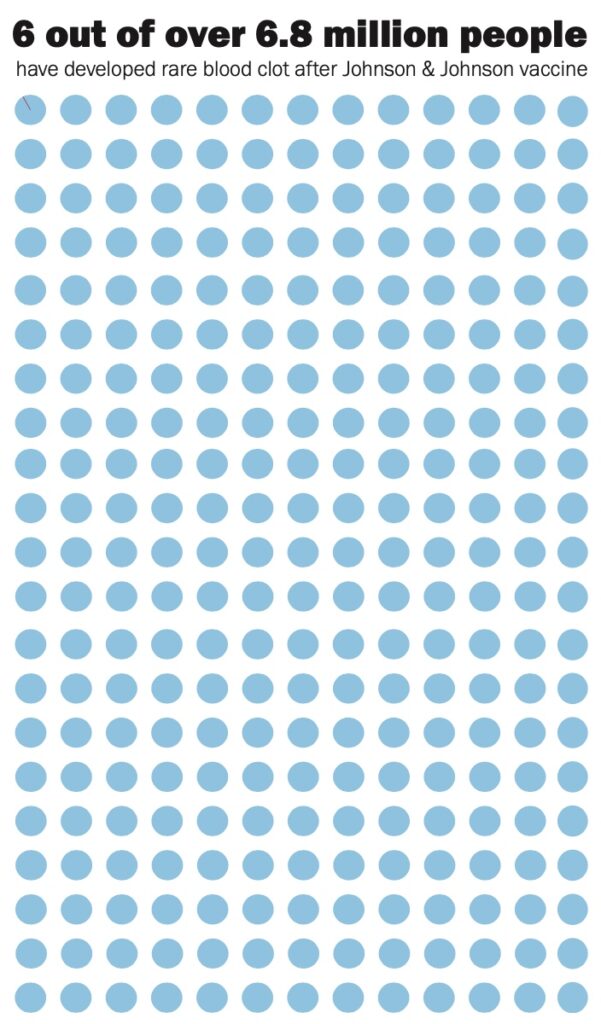
In response to the Michigan Department of Health and Hu- man Services’ recommendation, Ferris will not be distributing the Johnson and Johnson COVID-19 vaccine until further notice.
A message sent to the COVID-19 Community Corps from United States Surgeon General Dr. Vivek Murthy stated that this news does not pertain to or af- fect the Moderna or Pfizer-BioN- Tech vaccines in any way.
The pause in distribution was first recommended Tuesday, April13 by public health officials from the FDA and the CDC in or- der to investigate the cause of rare and serious blood clots.
Out of the nearly seven mil- lion people who received the Johnson and Johnson COVID-19 vaccine by the time of the an- nouncement, six women between the ages of 18 and 48 were di- agnosed with the blood clot re- ferred to as cerebral venous si- nus thrombosis.
Assistant professor and Doc- tor of Public Health Emmanuel Jadhav explained that the deci- sion to pause distribution was an act of caution. A clear link be- tween the vaccine and CVST has not been found.
“If somebody is taking so much precaution, it makes you feel safe that there is an agency or there’s a unit out there that is watching out for us,” Jadhav said.
Professor and Doctor of Phar- macy Michael Klepser echoed this statement, adding that the true message of the situation must not be lost.
“The unfortunate thing is, you know, people will take this mes- sage, and some groups will twist it into an anti-vaccination mes- sage,” Klepser said. “When real- ly, this is a message of caution, and a message that the safe- guards that are in place work,”
Jadhav stated that symptoms of CVST would most likely oc- cur within one week of receiv- ing the Johnson and Johnson vaccine. Severe cases may in- clude new neurological symp- toms, abdominal pain, leg swell- ing or tiny red spots on the skin.
According to Klepser, there have been more instances of blood clots among those diag- nosed with COVID-19 than those who received the Johnson and Johnson vaccine.
“There is a much, much, much higher rate of people getting se- rious blood clots from having COVID, for the most serious [type of blood clots] is 39 per million people with COVID,” Klepser said.
Klepser also explained that the available and effective COVID-19 vaccines have histori- cally low levels of potential side effects.
“We know that there have been hundreds of thousands of individuals who have died from COVID,” Klepser said. “We know of millions of individuals that have long-term problems
because of COVID. We have an incredibly low rate of side effects with the vaccines that can pre- vent COVID.”
Klepser and Jadhav agree that encouraging herd immunity through vaccination is the most effective way to save lives, and the best way to return to a world that feels “normal.”
“Let’s not sugarcoat it. We’ve been in this situation for over a year, and we’re still seeing lots of infections and lots of deaths,” Klepser said. “And there’s a number of reasons for that. But the bottom line is, we still have a way to go. In order to keep the pandemic from growing and spreading, you have to not give it a host.”
Jadhav fervently disagrees with the sentiment that those who were diagnosed with COVID-19 in the past do not need to get vaccinated.
“It’s like saying I broke my arm; I don’t need to get it fixed,” Jadhav said. “Because it’s a very commonly made argument and, you know, getting the antibodies that you produce from getting COVID, the rate at which that pro- duction happens is different from getting the vaccine itself.”
Any Ferris student who pre- viously signed up to receive the Johnson and Johnson vaccine on campus has been sent an email from Birkham Health Center. The university encourages all stu- dents to get vaccinated and has no other comment on the situa- tion at this time.
